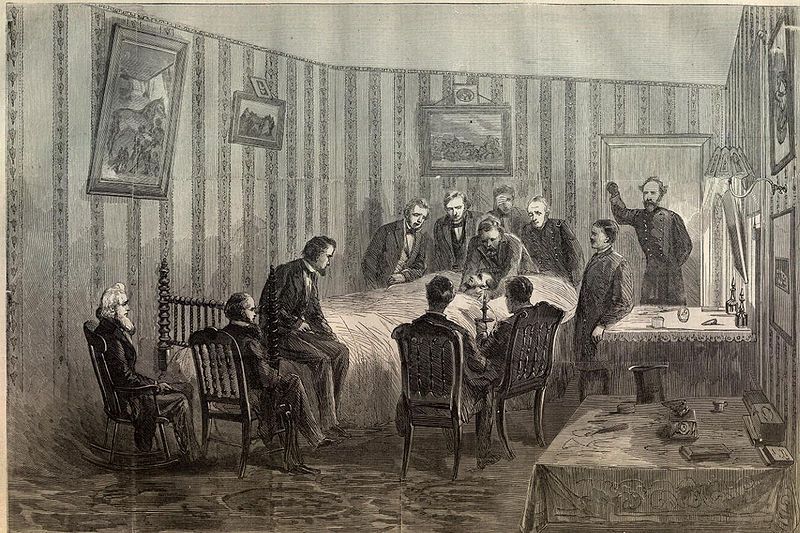“Punting the Pundits” is an Open Thread. It is a selection of editorials and opinions from around the news medium and the internet blogs. The intent is to provide a forum for your reactions and opinions, not just to the opinions presented, but to what ever you find important.
Thanks to ek hornbeck, click on the link and you can access all the past “Punting the Pundits”.
New York Times Editorial: Republicans and the Gun Lobby
Republican politicians gathering at the National Rifle Association convention in St. Louis are eagerly pandering to a powerful political lobby that is intent on making the nation’s gun laws weaker and more riddled with more dangerous loopholes. Rather than tackling public safety risks like the Stand Your Ground law implicated in the killing of Trayvon Martin in Florida, Mitt Romney and others offered nothing but exhortations to defend the Second Amendment’s right to bear arms at all costs.
President Obama has regrettably been avoiding the gun control issue. Still, Mr. Romney attacked him at the convention on Friday, promising to stand with the N.R.A. “for the rights of hunters and sportsmen and those seeking to protect their homes and their families.” This was a far cry from Mr. Romney’s 1994 campaign for the United States Senate when he assured centrist Massachusetts voters: “I don’t line up with the N.R.A.” Yet there he was in St. Louis, lining up. Newt Gingrich, in his over-the-top manner, urged a United Nations campaign to proclaim the Second Amendment “a human right for every person on the planet.”
Rik Smits: Lefties Aren’t Special After All
FEW truly insignificant traits receive as much attention as left-handedness. In just the last couple of generations, an orientation once associated with menace has become associated with leadership, creativity, even athletic prowess. Presidents Gerald R. Ford, George Bush, Bill Clinton and Barack Obama were born left-handed (as was Ronald Reagan, though he learned to write with his right hand). Folklore has it that southpaws are unusually common in art and architecture schools. Left-handed athletes like Tim Tebow and Randy Johnson are celebrated.
The idea of “correcting” left-handedness, common in the postwar United States, now seems quaint if not barbaric. “My parents understood I was left-handed/and didn’t make me write against the grain/the way so many people their age had to,” Jonathan Galassi writes in “Left-handed,” his new collection of poems.
Two years ago, Washington’s influential neoconservatives – both inside and outside government – shot down a possible resolution to the Iranian nuclear dispute because they wanted a confrontation with Tehran that some hoped would lead to their long-held dream of “regime change.”
In the ensuing two years, the cost of that confrontation has been high not just for Iranians, who have faced harsh sanctions, but for the world’s economy. For instance, Israeli Prime Minister Benjamin Netanyahu’s recent escalation of bomb-Iran rhetoric contributed to the spike in gasoline prices that seems to be choking off the U.S. recovery, just as job growth was starting to accelerate.
But the Israelis and their neocon allies have yet to back away from the path toward war. They appear ready to take President Barack Obama to task if he makes any meaningful concessions to Iran in international negotiations that are set to resume in Istanbul, Turkey, on Friday.
Bernie Sanders and Ryan Alexander: Stop the Nuclear Industry Welfare Program
After 60 years, the taxpayer should not continue to subsidize multibillion-dollar corporations in the nuclear energy sector
The US is facing a $15 trillion national debt, and there is no shortage of opinions about how to move toward deficit reduction in the federal budget. One topic you will not hear discussed very often on Capitol Hill is the idea of ending one of the oldest American welfare programmes – the extraordinary amount of corporate welfare going to the nuclear energy industry.
Many in Congress talk of getting “big government off the back of private industry”. Here’s an industry we’d like to get off the backs of the taxpayers.
As, respectively, a senator who is the longest-serving independent in Congress and the president of an independent and non-partisan budget watchdog organisation, we do not necessarily agree on everything when it comes to energy and budget policy in the US. But one thing we strongly agree on is the need to end wasteful subsidies that prop up the nuclear industry. After 60 years, this industry should not require continued and massive corporate welfare. It is time for the nuclear power industry to stand on its own two feet.
Bill Moyers and Michael Winship: The Rich Are Different from You and Me – They Pay Less Taxes
Benjamin Franklin, who used his many talents to become a wealthy man, famously said that the only things certain in life are death and taxes. But if you’re a corporate CEO in America today, even they can be put on the back burner – death held at bay by the best medical care money can buy and the latest in surgical and life extension techniques, taxes conveniently shunted aside courtesy of loopholes, overseas investment and governments that conveniently look the other way.
In a story headlined, “For Big Companies, Life Is Good,” The Wall Street Journal reports that big American companies have emerged from the deepest recession since World War II more profitable than ever: flush with cash, less burdened by debt, and with a greater share of the country’s income. But, the paper notes, “Many of the 1.1 million jobs the big companies added since 2007 were outside the U.S. So, too, was much of the $1.2 trillion added to corporate treasuries.”
David Sirota: The End of ‘Shut Up and Play’
As high-profile events periodically prove, politics and athletics have long had a love-hate relationship, the affinity ebbing and flowing with the cultural tides. In the tumultuous 1960s, for instance, stars like Muhammad Ali, Arthur Ashe and John Carlos used their notoriety to embolden the major social movements of the time. Then came the 1980s and 1990s, which saw the sports world depoliticized in an age of “Just Do It” and “greed is good.” For every Charles Barkley using Nike commercials to forward social messages about role models, there were far more Michael Jordans who avoided any political statements whatsoever.
Skip forward to 2012-a superheated moment primed by seething protest campaigns and a divisive presidential election. Not surprisingly, the sports world has again shifted, becoming just as politically fraught as the society it entertains-and whether or not you agree with a particular sports icon’s opinion, the larger change is a welcome development for participatory democracy.
Richard Reeves: The Quiet Campaign: Voter Suppression
The 2012 presidential election is not only about who votes for Barack Obama and who votes for Mitt Romney. It is also about who votes.
In a national campaign that does not get much national publicity, at least 41 states have passed laws or are considering new laws making it more difficult to vote in November, or legislation designed to discourage people from even trying to cast ballots, according to a study by the Brennan Center for Justice at New York University School of Law.
The center reports on a quiet wave of new state legislation sweeping the country that focuses on voting eligibility and estimates that these laws could reduce presidential voting by as many as 5 million votes. To put that number in perspective, in 2008, Obama won the presidency by 9 million votes.


 On this day in 1742,
On this day in 1742,  On this day in 1961, aboard the spacecraft Vostok 1, Soviet cosmonaut
On this day in 1961, aboard the spacecraft Vostok 1, Soviet cosmonaut 
Recent Comments